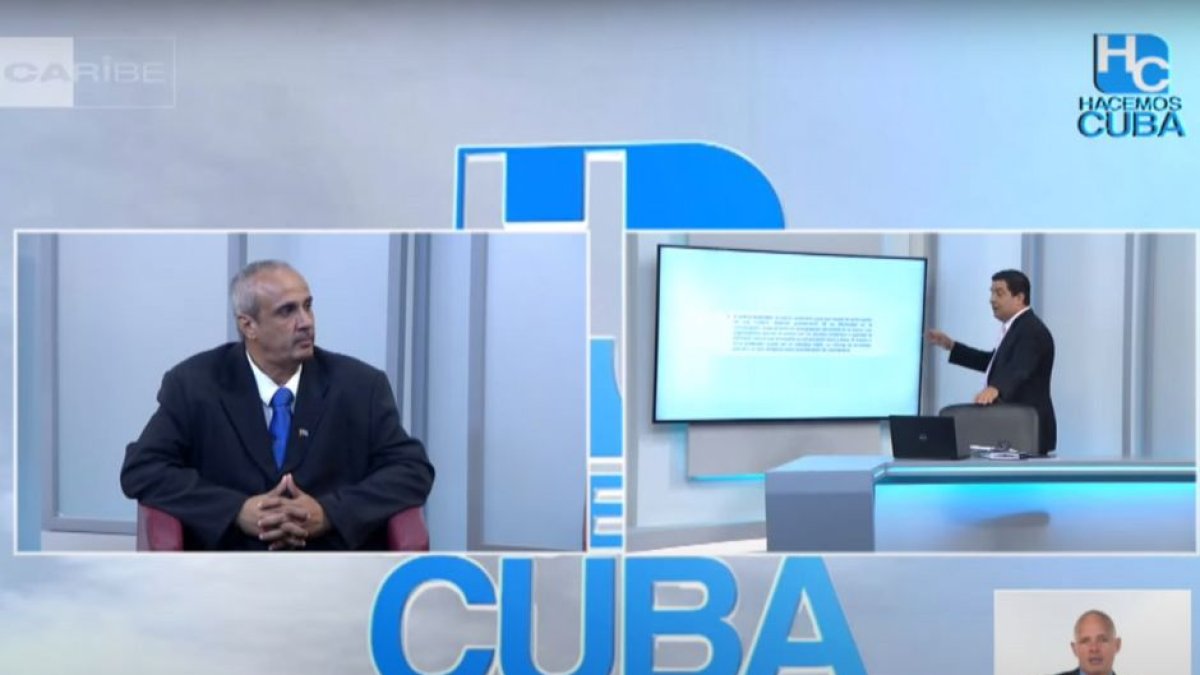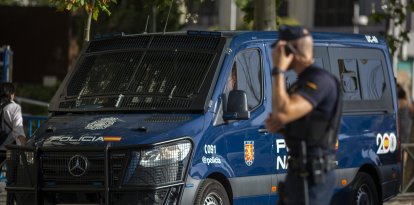Cuban regime threatens protesters with the death penalty
Otto Molina Rodríguez, president of the Criminal Chamber of the Supreme People's Court of Cuba, assured that those who intend to "overthrow the government" would be committing a crime of sedition.

El programa televisivo Hacemos Cuba, transmitido por el Canal Caribe (del sistema estatal)
The Cuban Observatory for Human Rights claimed that the Cuban regime is threatening protesters with the death penalty. The organization maintained that human rights must be guaranteed and the death penalty must be immediately eliminated from Cuba's penal code.
The observatory's reaction came after an episode of the TV news program "Hacemos Cuba," broadcast by Canal Caribe (which belongs to the state television system), featured senior officials from the Ministry of the Interior and the justice system defending the actions of the police during the wave of protests and referred to the crime of sedition, among other charges, to threaten to those who promote or participate in protests that have the intention to "overthrow the government."
'It no longer only remains an issue of public unrest'
"It no longer only remains an issue of public unrest ... but the intention is to subvert order, our rule of law and social justice so that they can fulfill their purposes of colonizing us," said Otto Molina Rodríguez, president of the Criminal Chamber of the Supreme People's Court of Cuba.
The Official Gazette of Cuba, in article 121, explains that those who "disturb the socialist constitutional order" can face the charge of sedition, which in Section A establishes that they will be punished "with deprivation of liberty of 10 to 30 years, perpetual deprivation of liberty or death, if the crime is committed in exceptional situations, disasters or affects the security of the state, or during serious disturbance of public order, or in a military zone, resorting to weapons or exercising violence."
The Cuban Observatory for Human Rights stated that it "condemns the threat of applying the death penalty, carried out this Thursday on Cuban national television against those who participate in demonstrations on the island."
And, per a report by Spanish newspaper ABC, "At least 225 protesters from the historic protests of July 11 and 12, 2021, (11J) were prosecuted for this alleged crime, and of them, at least 222 have already been sentenced to an average of 10 years of deprivation of liberty, according to Prisoners Defenders (PD)."
Furthermore, ABC recalled that "in Cuba, capital punishment has been in moratorium since 2003, when it was applied for the last time against three young Cubans who hijacked a boat to try to reach the United States, though without causing fatalities. Between 1959 and 2003, thousands of Cubans were put to death, most of them in the first years of the dictatorship and their crimes consisted of opposing the regime of the Castro brothers."
Concerns about statements from Castro officials were also expressed by several Cuban media outlets. CubaNet maintained that the intention of the Cuban ruling party is to send a message that it will not tolerate social protests and that it will use all the power of the state to repress citizens who demand freedom.
"The 'Hacemos Cuba' program left a clear message: the Cuban dictatorship will not tolerate social protest and will use all the force of the state to repress any demonstration that it considers a threat to its power. The threats with the crime of sedition, the accusations against alleged 'terrorists' and the staunch defense of police action are examples of the regime's strategy to silence public discontent and maintain absolute control of the country," CubaNet noted.

























